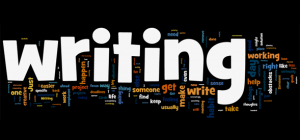
by Jenna | Oct 22, 2015 | Writing Articles
Yesterday I had the pleasure of listening to psychologist Jessica Michaelson speak about dealing with our "click and scroll" compulsions in the context of how they keep us from living the lives we want to lead. Jessica is a brilliant psychologist that I've worked with on a number of different issues and I adore her for her clarity, deep honesty, relentless compassion, and her willingness to embrace the darker sides of our psyches.
The trap of online use and how it affects our writing
I took the class because while I've gotten my past Facebook and Twitter compulsions under control, I still find myself checking email and for other alerts much more frequently than I'd like to, or that is ultimately necessary for my business and life. I also find myself getting distracted by online interactions at the wrong time -- meaning, they are interactions I actually want to be having, but I'm having them at a time that doesn't work in my life, with my kids in particular.
Also, I read a recent post of Jessica's that got me thinking about the effect my online activities were having on my general demeanor — I know I'm likely to be more snappish and distracted when I allow myself to try to do two things at once, and I don't feel good about myself when I'm like that.
The other thing that stood out for me from her post was how much more peaceful she was feeling and how much more energy she had as a result of cleaning up her online use.
Although I've mostly managed to prevent online activities from interfering with my actual designated writing time, I'm aware that having my mind occupied and distracted and busyified with other people's stuff and other online BS takes away from my clarity of mind and my ability to explore my own ideas, which can interfere with my writing. I instantly saw her point about how ceasing or reining in these kind of distractions would free up a lot of energy for me.
And I know I'm not alone.
A number of my writers in my Called to Write community and in the classes I teach talk about how hard it is to stop themselves from surfing the internet reading the news or articles, checking email, and scrolling through various online social media sites, and how it impacts their writing time-wise. Having now read what Jessica wrote and listened to what she shared today, I can also see how those seemingly innocuous activities may be draining some of our energy for writing.
It's important to note the "may" in that sentence and I'll tell you more about why in a moment.
Solutions for handling online impulse control
Here's what I learned from Jessica:
- There's no one right way here (a woman after my own heart!) when it comes to online use. Every one of us has to decide what it is that we want to create with and in our lives, and then make a decision about how much (if any) online time supports that. In my case, a significant part of my business, marketing, community-building, and social life happens online, and that's totally okay with me. It's only when it crosses the line into compulsively checking that I don't like it.
- Our brains love mindless, automatic, and habitual activities because they release dopamine, which feels great, so there's a biochemical reward for doing the same things over and over again without thinking. It feels good, so we do it.
- The problem is that being on autopilot means that we have let go of making conscious choices in our lives, and that's where most/many of us actually want to live, where we are in the driver's seat of our own lives.
- If we're going through a rough patch in our lives, we may NOT want to try to reduce or corral our online use because it serves as a buffer for the discomfort we are experiencing. This resonates for me; I know that when I've gone through difficult life phases, having some of these tools for distraction have felt like life savers.
- A big key to solving this challenge is to accept it. In other words, we will always feel discomfort in our lives in some form, and so we will always have urges toward numbing activities, whether they are online activities or another sort (like over eating, TV watching, etc.). Jessica says that the key here is to accept the discomfort, the urges, and the uncomfortable feelings as part of the package. To notice them, and breathe through them.
- The solution is, in fact, a four-part combination approach of defining what we want from our lives, noticing what's happening when we have the urge to click, accepting the discomfort we're experiencing and impulses to click to calm it, and choosing to make new choices and create habits and supports to help ourselves see them through. Jessica goes into a more detail on each of these points in the webinar.
The discomfort of writing
All this strikes an important chord around the discomfort of writing. Remember, we know that writing — because it is our biggest calling — will trigger massive amounts of resistance. And resistance comes from wanting to avoid fear and discomfort.
So it makes perfect sense that it's so so so easy to say "I'll just check the news/Facebook/Twitter/email real quick before I start writing". It helps soothe that discomfort with a nice dose of dopamine that makes us feel better ... for a minute. But then we feel terrible for not doing the writing like we said we would.
Taking time to instead define what we want in our lives, for our writing, and for our online use and making new choices to support that are a huge step in the right direction. Jessica pointed out though, that we can't skip the steps of noticing and accepting, if we truly want to create lasting change.

by Jenna | Sep 21, 2015 | Writing Articles
Overcoming resistance to writing requires more effort initially than it does later on, particularly if you build a writing habit and get into the swing of doing it every day without question, like brushing your teeth.
Before that -- and sometimes even after you have a writing habit in place -- one of your best tools for fighting resistance is insistence.
I suppose it's a kind of willpower but I think of it more as a blazing piece of magic and determination that tells resistance: "YOU SHALL NOT PASS!"
Insistence means drawing a line in the sand and saying, "I WILL write today!" even if that looks like aiming for your rock bottom minimum of fifteen minutes or 350 words or whatever you've identified as your "no matter what".
Insistence doesn't have to be a ruthless warrior either. She can also be a gentle goddess, coaxing you to the page, kindly insisting that yes, indeed, you can write today, even just for five minutes. She's the one that helps you set the timer and get the file open and start typing.
There are days when insisting that I write feels exhausting, like one more thing to do on my overly full plate. But there's a deeper part of me that feels relieved and satisfied when I show up and do it.
Release the joy
I believe that writing is a calling. Something we can't not do. It doesn't come easy for all writers. For many of us, resistance is so overpowering that we begin to believe perhaps we just don't care enough about writing to actually do it.
Here's the thing. Where there is resistance, there also is passion, secret joy, energy, enthusiasm, and delight just waiting to burst out, to be freed from its prison.
You are the one with the power to release it.
Gently insisting that you will write today, even just a little bit, begins to break down the dam that holds back all that joy.
Is writing always joyful?
Will you feel joyful while you write?
Maybe not.
Perhaps it's the pessimistic side of me but I often feel more like a terrified deep sea diver putting on her scuba gear when I sit down at my desk to write. And while I'm underwater I focus on doing the work, as if the sharks and other unseen terrors might be show up at any time. And it's hard work too, extracting ores and hauling buried treasures back to the surface. It's only once I've returned to the surface, pulled off my gear, and taken a breath of fresh air that the relief and joy erupts through me.
I'm okay with that. But sometimes, I need a little insistence to help me get past the fear of facing all that hard work. :)
What about you? How does insistence help you show up and do the work?


by Jenna | Apr 16, 2015 | Writing Articles
When someone joins my writing community, and doesn’t participate, I am always fascinated to know why. I don’t assume that the person is lazy or just not writing. And sometimes there are real reasons, like a sudden death in the family or an unexpected deadline at work.
But more often than not, when someone isn’t writing, it’s resistance. Resistance means avoiding the very thing you know you most want to do. In fact, the bigger the calling, the more resistance.
And if you’re the one in resistance, it can be tricky to spot. The stories we tell ourselves become so familiar, we take them as givens.
Garden variety resistance
Stories like “being too busy”, for instance, are common. It’s our best socially acceptable excuse, after all! These are the more obvious cases, where the writer says they want to write, but fails to do so, saying they are too busy.
It’s resistance, plain and simple.
Sure. It might ALSO be true that they are too busy. But WHY are they too busy? What self-created realities are they living in that make them too busy to write?
Resistance leads us to create overflowing lives with impossible tasks and deadlines, because if we CAN’T write, we don’t have to write. Saved!
We always have a choice
The thing is, though, we make the choices that create our lives.
Sure, we might have to hold down day jobs. But we don’t have to be perfectionists about Every Single Bit of work that we do, or work Every Single Available Hour to successfully accomplish our jobs. Perfectionism keeps us working on other projects far longer than necessary. Being busy in this way is the ultimate form of procrastination.
The reality is that it is almost always possible to write for just a few minutes a day, no matter how busy you are. Usually if you can’t find a few minutes, it’s because you’re allowing perfectionism and resistance to get in the way, one way or the other. Even taking on too much work is a form of perfectionism, because when we can’t write, we don’t have to, and we don’t have to see ourselves fail to reach our own impossibly high standards.
Insidious types of resistance
The more insidious types of resistance are new projects that suddenly demand our attention, like just when we’ve finally committed to writing a novel, we decide we have to start a thirty-day workout program, get another degree, start a new business, clear our clutter, move, or fix our finances.
Why do we do this?
On the surface, it might look like we’re mastering self-improvement in all areas of our lives, all at once. It feels so good to finally be committing to writing that we overcommit to trying to improve everything in our lives. Or it might look like we’ve gotten clear that these other projects are more important to do first.
It looks noble. Or smart, to get your priorities in order.
But underneath, it’s self-sabotage.
What we’re really doing is simply avoiding the writing. We might not be willing or able to admit it to ourselves at the time, but raw naked terror is running the show. Better to build one habit or make one major change at a time, ideally in small manageable pieces.
There’s nothing like signing up for something like the writing community or committing to doing the work, and then seeing yourself run fleeing in the other direction (or just plain old losing interest) to clue you in to the fact that you are secretly TERRIFIED of facing the page.
Not that there’s anything wrong with being scared.
In fact, it’s ENTIRELY normal. If you aren’t scared, you might even be doing it wrong.
You might be surprised about what I really think when you aren’t writing
But here’s the thing. If you tell me you want to write and the instantly do the opposite, you might be surprised (or not, if you know me at all!) to know that I DON’T think:
- He’s being lazy.
- She isn’t serious about being a writer.
- He doesn’t have what it takes.
Far from it.
In fact, what goes through my brain is:
- Oh, poor thing, she must be terrified.
- I wonder if he knows he’s running away.
- I hope she will reach out for help instead of hiding.
- I wonder if he knows how defended he is right now.
- I wonder what she’s doing instead of writing and how I can help her troubleshoot it.
What I really see hidden in the way writers act out after they’ve committed to writing but don't do it – is a cry for help.
The bigger the badder
And the larger the way the resistance plays out, the more terror I see:
- Taking on new responsibilities at work or for the kids' schools? Scared.
- Going out drinking every night instead of writing? Panicky.
- Suddenly deciding to start a new business venture or get a fine arts degree? Petrified.
All these kinds of choices – whether they are sudden new choices or chronic patterns – they are resistance, and show us how scared we truly are.
Is this grounds for self-flagellation?
No.
Far from it.
It’s powerful information.
When you know you are not lazy or weak willed but scared, then you know how to deal with it.
The antidote for fear
The antidote for fear is courage.
But it’s also about having a super simple plan to bypass the fear and get into action with the smallest possible steps to get you writing.
So when I see you not writing, my first response is compassion, followed by tons of support and brainstorming to help you get going again. It’s as simple as that.

by Jenna | Jan 7, 2015 | Writing Articles
Apparently I think in sevens a lot, at least when it comes to writing about writing.
As I was reviewing the most-read posts of 2014, apparently sevens were appealing to you, too.
These "7's" posts were among the most popular last year, counting down to your favorite (and there's no surprise to me there about why that one was the favorite -- it's something we all deal with!)
So, in reverse order, our lucky sevens:
7 steps to recovering from creative burnout
 When you get burned out, it's hard to do anything, let alone be creative. In this article, I outline seven steps you can take to go from creative burnout to creative recovery, so you can bring back the joy you feel when you create. This is an important skill to master because sometimes -- even when we're doing our very best to keep the creative well filled and do our writing at a sustainable pace -- resistance, deadlines, life, and fate conspire to the point where we're scrambling to finish a project under a big time crunch, binge-write, and exhaust ourselves as a result (sometimes doing so for days, weeks, even months on end). And once we've hit that bottom of the creative barrel, writing anything sounds entirely miserable. Read this article to find out how to bring yourself back into creative balance.
When you get burned out, it's hard to do anything, let alone be creative. In this article, I outline seven steps you can take to go from creative burnout to creative recovery, so you can bring back the joy you feel when you create. This is an important skill to master because sometimes -- even when we're doing our very best to keep the creative well filled and do our writing at a sustainable pace -- resistance, deadlines, life, and fate conspire to the point where we're scrambling to finish a project under a big time crunch, binge-write, and exhaust ourselves as a result (sometimes doing so for days, weeks, even months on end). And once we've hit that bottom of the creative barrel, writing anything sounds entirely miserable. Read this article to find out how to bring yourself back into creative balance.
7 ways to recommit to your writing
 Sometimes as writers we get into a good writing practice but still manage to become complacent about actually FINISHING projects and moving on to the next one, rather just making small amounts of progress or endlessly rewriting and editing. When that happens, it's time to recommit, and raise the bar of our own expectations. In this article, I discuss seven ways to stop phoning it in and require more of yourself as a writer. Read this article to find out how to to recommit to your own writing.
Sometimes as writers we get into a good writing practice but still manage to become complacent about actually FINISHING projects and moving on to the next one, rather just making small amounts of progress or endlessly rewriting and editing. When that happens, it's time to recommit, and raise the bar of our own expectations. In this article, I discuss seven ways to stop phoning it in and require more of yourself as a writer. Read this article to find out how to to recommit to your own writing.
7 ways to overcome fear and uncertainty about writing
 In this terrific guest post, produced screenwriter Sarah Newman talks about how to stay in action and keep moving forward with our writing even when fear and uncertainty rear their ugly heads. She shares a list of seven great ways to get unstuck and keep writing that I'm sure you will find both handy and inspiring. Read her article and discover how to get into action with your writing.
In this terrific guest post, produced screenwriter Sarah Newman talks about how to stay in action and keep moving forward with our writing even when fear and uncertainty rear their ugly heads. She shares a list of seven great ways to get unstuck and keep writing that I'm sure you will find both handy and inspiring. Read her article and discover how to get into action with your writing.
My 7 part series, "Make 2015 your year to write"
 Our most recent "7's" post was my seven-part series, called "Make 2015 Your Year to Write". If you missed it, it's not too late to work with the writing prompts in the series that will help you design and create goals and resolutions for your writing year (2015 or otherwise!) so that they are well-aligned with what you want in the big picture. That way you can make sure you're working grounded in the reality of where you are right now as a writer and where you want to end up.
Our most recent "7's" post was my seven-part series, called "Make 2015 Your Year to Write". If you missed it, it's not too late to work with the writing prompts in the series that will help you design and create goals and resolutions for your writing year (2015 or otherwise!) so that they are well-aligned with what you want in the big picture. That way you can make sure you're working grounded in the reality of where you are right now as a writer and where you want to end up.
7 tips for staying motivated by self-created deadlines
 This article ties in neatly with the article on recommitting, because self-created deadlines can be a powerfully motivating when it comes to hunkering down and doing the work. In this piece I talk about seven strategies you can use to make your inner deadlines actually mean something. Hint: It often involves turning those "inner" deadlines into outer ones. Read more about mastering your self-created deadlines here. (And see if you can guess which one is my favorite!)
This article ties in neatly with the article on recommitting, because self-created deadlines can be a powerfully motivating when it comes to hunkering down and doing the work. In this piece I talk about seven strategies you can use to make your inner deadlines actually mean something. Hint: It often involves turning those "inner" deadlines into outer ones. Read more about mastering your self-created deadlines here. (And see if you can guess which one is my favorite!)
And your favorite "7" post: 7 ways to beat procrastination
 This article was your favorite "7" post, and it's one of mine too. And it's no surprise. Procrastination is one of the biggest things we struggle with as writers. In the piece I talk about the most common reasons for procrastination and seven ways to beat it, including some things you may not have thought of, like setting super small micro goals, telling others about what you're doing to create accountability for yourself, and knowing when to STOP writing. Check it out here and bust your own procrastination habit while you're at it.
This article was your favorite "7" post, and it's one of mine too. And it's no surprise. Procrastination is one of the biggest things we struggle with as writers. In the piece I talk about the most common reasons for procrastination and seven ways to beat it, including some things you may not have thought of, like setting super small micro goals, telling others about what you're doing to create accountability for yourself, and knowing when to STOP writing. Check it out here and bust your own procrastination habit while you're at it.
Enjoy, writers!
I hope your 2015 is off to a great start.
Happy writing.


by Jenna | Dec 4, 2014 | Writing Articles
Resistance to writing is rife at this time of year. Perhaps that's why we're so well primed to resolve to "do better" when the New Year rolls around.
(Though personally I'm not that big a fan of resolutions, especially since they tend to peter out pretty quickly. I'm much more interested in building lasting change through habit. But more on that at a future time.)
There are so many reasons not to write during the busy holiday season: events, obligations, traditions, expectations, inertia, busyness, shopping, cooking, and even just the desire to celebrate and rest up at the end a long year.
Why it's better to keep writing than to take time off
But the truth is, it's far better to keep writing -- even if you're just doing the bare minimum -- than it is to stop writing.
Here's why.
First, it's much harder to get started writing again once you've stopped for more than a day or two (and for some of us even one day is too much!). Inertia and resistance builds up when we stop and it's terrifically hard to overcome it and get going again. If you're writing regularly, it's easier to keep writing. If you're NOT writing regularly, well, it's easier to just keep on NOT WRITING.
And then the guilt and anxiety sets in. (This is the second reason. And it ain't pretty. Who can really enjoy putting your feet up and watching a movie when you've got that nagging sick feeling in the pit of your stomach?)
This is because when you know you "should" be writing (and I use the word "should" here to mean that you've got a project YOU want to work on but you're avoiding it), you'll be experiencing a constant low level state of anxiety and guilt, which can ruin whole days at a time.
You're much better off aiming for what I call your "rock bottom daily writing goal", even if it's just 15 minutes a day.
Last, it's much more inspiring to start the new year from a strong place that will only get stronger, rather than feeling like you're behind and can never catch up.





 When you get burned out, it's hard to do anything, let alone be creative. In this article, I outline seven steps you can take to go from creative burnout to creative recovery, so you can bring back the joy you feel when you create. This is an important skill to master because sometimes -- even when we're doing our very best to keep the creative well filled and do our writing at a sustainable pace -- resistance, deadlines, life, and fate conspire to the point where we're scrambling to finish a project under a big time crunch, binge-write, and exhaust ourselves as a result (sometimes doing so for days, weeks, even months on end). And once we've hit that bottom of the creative barrel, writing anything sounds entirely miserable.
When you get burned out, it's hard to do anything, let alone be creative. In this article, I outline seven steps you can take to go from creative burnout to creative recovery, so you can bring back the joy you feel when you create. This is an important skill to master because sometimes -- even when we're doing our very best to keep the creative well filled and do our writing at a sustainable pace -- resistance, deadlines, life, and fate conspire to the point where we're scrambling to finish a project under a big time crunch, binge-write, and exhaust ourselves as a result (sometimes doing so for days, weeks, even months on end). And once we've hit that bottom of the creative barrel, writing anything sounds entirely miserable.  Sometimes as writers we get into a good writing practice but still manage to become complacent about actually FINISHING projects and moving on to the next one, rather just making small amounts of progress or endlessly rewriting and editing. When that happens, it's time to recommit, and raise the bar of our own expectations. In this article, I discuss seven ways to stop phoning it in and require more of yourself as a writer.
Sometimes as writers we get into a good writing practice but still manage to become complacent about actually FINISHING projects and moving on to the next one, rather just making small amounts of progress or endlessly rewriting and editing. When that happens, it's time to recommit, and raise the bar of our own expectations. In this article, I discuss seven ways to stop phoning it in and require more of yourself as a writer.  In this terrific guest post, produced screenwriter Sarah Newman talks about how to stay in action and keep moving forward with our writing even when fear and uncertainty rear their ugly heads. She shares a list of seven great ways to get unstuck and keep writing that I'm sure you will find both handy and inspiring.
In this terrific guest post, produced screenwriter Sarah Newman talks about how to stay in action and keep moving forward with our writing even when fear and uncertainty rear their ugly heads. She shares a list of seven great ways to get unstuck and keep writing that I'm sure you will find both handy and inspiring.  Our most recent "7's" post was my seven-part series, called "Make 2015 Your Year to Write". If you missed it, it's not too late to work with the writing prompts in the series that will help you design and create goals and resolutions for your writing year (2015 or otherwise!) so that they are well-aligned with what you want in the big picture. That way you can make sure you're working grounded in the reality of where you are right now as a writer and where you want to end up.
Our most recent "7's" post was my seven-part series, called "Make 2015 Your Year to Write". If you missed it, it's not too late to work with the writing prompts in the series that will help you design and create goals and resolutions for your writing year (2015 or otherwise!) so that they are well-aligned with what you want in the big picture. That way you can make sure you're working grounded in the reality of where you are right now as a writer and where you want to end up. 
 This article was your favorite "7" post, and it's one of mine too. And it's no surprise. Procrastination is one of the biggest things we struggle with as writers. In the piece I talk about the most common reasons for procrastination and seven ways to beat it, including some things you may not have thought of, like setting super small micro goals, telling others about what you're doing to create accountability for yourself, and knowing when to STOP writing.
This article was your favorite "7" post, and it's one of mine too. And it's no surprise. Procrastination is one of the biggest things we struggle with as writers. In the piece I talk about the most common reasons for procrastination and seven ways to beat it, including some things you may not have thought of, like setting super small micro goals, telling others about what you're doing to create accountability for yourself, and knowing when to STOP writing. 
